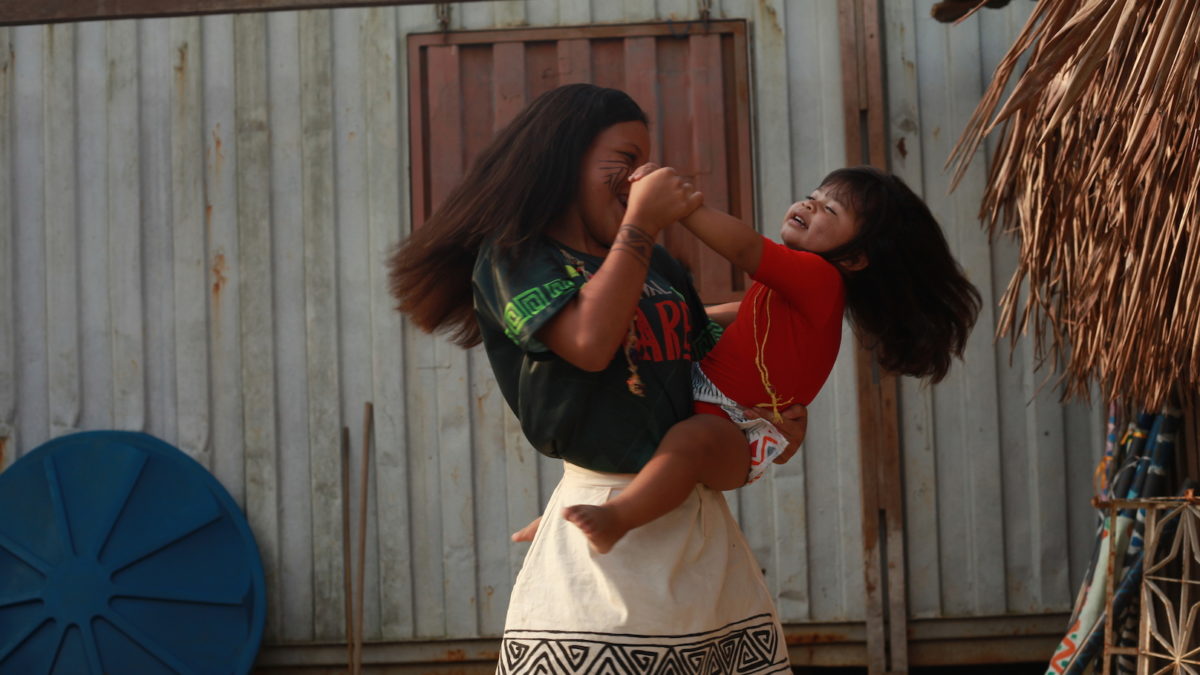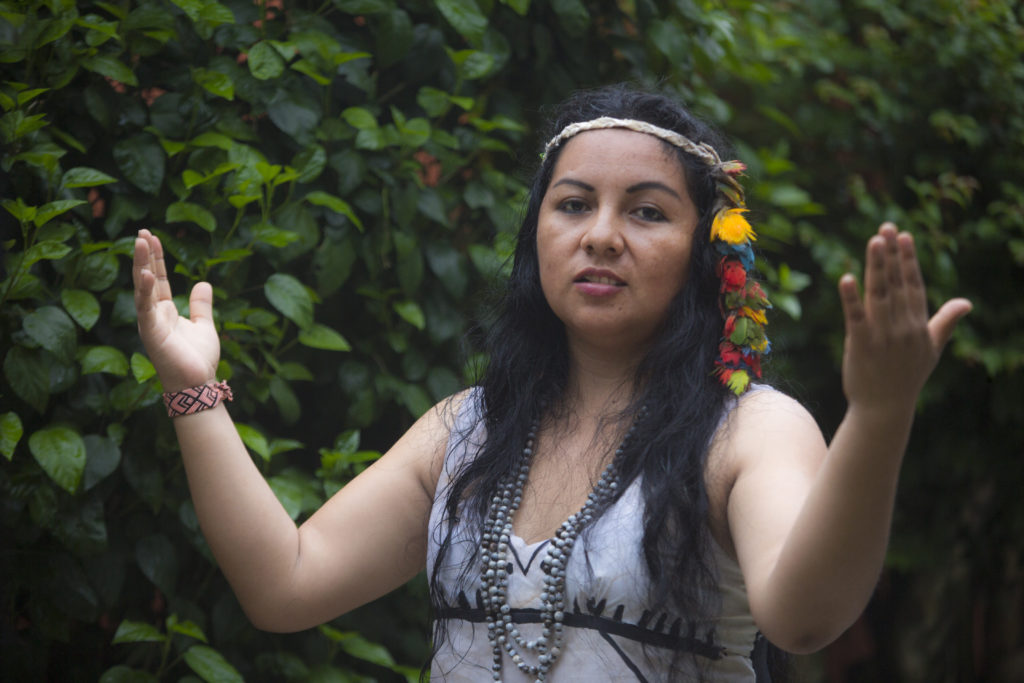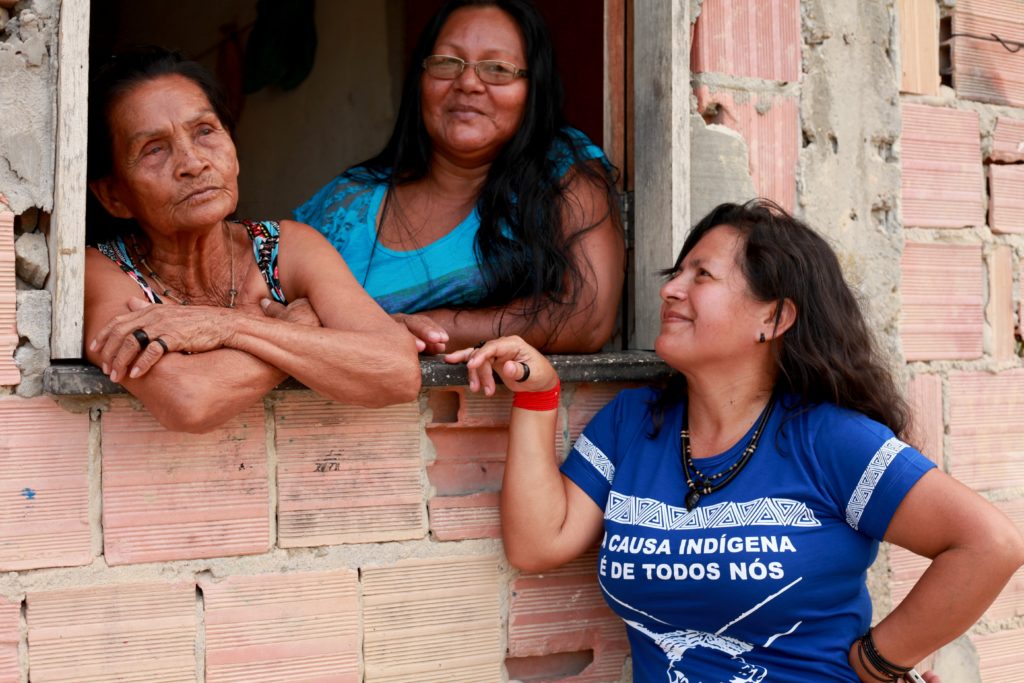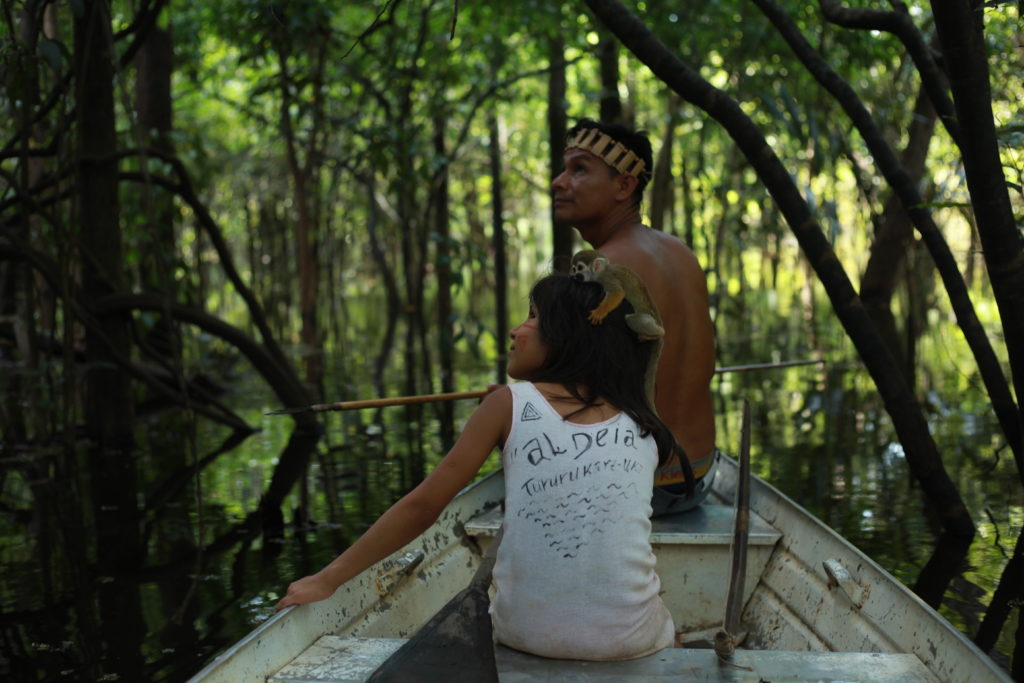Hopes for the Amazon Synod

An historic Synod on the Amazon took place in Rome in October 2019. For our Theology team, Harriet Paterson investigated the hopes of people at the heart of the story.
“This Synod revolves around life: the life of the Amazon territory and its peoples, the life of the Church, the life of the planet.”
Instrumentum Laboris #8
In 2019, Pope Francis invited the Church, and the world, to contemplate the fragile situation of the Amazon biome and its traditional peoples. The disastrous rise in deliberate forest fires across Brazil at the time underlined the urgency of his call.
As 300 bishops and Church leaders gathered in Rome for the Amazon Synod, indigenous leaders walked among them, bringing stories of resistance, but also of persecution, poverty and cultural loss.
What is an Amazon Synod? Read our Q&A to find out more

For decades CAFOD has worked for human and environmental rights in Amazonia, so we were excited that people who are so often persecuted or ignored were being heard on the world stage.
“I think that indigenous communities are the most invisible people on the planet,” said Yesica Patiachi Tayori of the Harakbut indigenous community in Peru’s Amazon basin. “But our cry has been heard by Pope Francis – the cry of indigenous communities who are suffering and have suffered.”
Pope Francis heard our cry
Teacher and painter Yesica was one of the specially selected indigenous representatives at the Synod. She felt incredibly lucky to meet Pope Francis during his 2018 visit to Peru, when she implored him to defend the indigenous people:
“He was moved by the Amazon. I think the Synod is the Catholic Church’s response to the Amazonian people’s cry. For me, the Synod means hope, reflection and dialogue. It will give visibility to the problems we are facing.
“I hope this Synod won’t just remain as a document but leads to action. The Synod needs to shake us. It has to summon us, call us to act. What are we leaving for future generations?”
A listening project
Indigenous people told us how important it feels to them to be heard. “This is a sacred moment,” said Mario Nicacio of the Wapixana people of Brazil.
“Awareness is being raised about all our actions, especially about the rights of indigenous people, the balance of nature and the fight against climate change.”
We supported local communities to give input into the Synod. A truly amazing listening project took place across the nine countries of the Amazon.
“We need to embrace the wisdom of the indigenous people and learn from them,” said Mauricio López of REPAM, a Catholic network behind the project.
“We hope the Synod will be a catalyst to open new pathways for the Church. We must start with a radical conversion of the heart.”

A remarkable 87,000 Amazonian people came forward to talk about their burning issues. These were distilled into the Synod’s working document, and included human rights abuses, environmental devastation, migration and violence against women.
New pathways for the Amazon
“The Synod doesn’t want to be only a space for a few people,” said Yesica. The process was rooted in the people of the Amazon, who have bold suggestions for how things must change.
All of us need to change our habits to favour renewable energy and end the throwaway culture, suggests the document. More women should be in leadership roles in the Church. Teams should be set up to welcome and integrate migrants.
“The Synod is already having an impact on the Church and society,” said Cardinal Pedro Barreto, vice-president of REPAM. “For the first time, a social and ecclesial institution is taking the reality of how indigenous communities live very seriously.”
Mauricio López told us how people rely on their churches in places where governments have too often mistreated their original peoples:
“Indigenous communities trust the Church,” he explains, “and we are standing alongside them to defend their territory, their identity and their culture.”
It’s about all of us
The future of the region and its people concerns us all. “When the Amazon suffers, we all suffer,” said the bishops of Latin America recently.
Not only is the rainforest a frontline defence against global warming, but its traditional inhabitants teach us lessons about how to live in close cooperation with the natural world.

“Amazonian culture and indigenous communities have a perfect harmony with water, the earth and air,” reflects Cardinal Barreto. “As Pope Francis says, they are the great teachers who can show us what we must be – careful protectors of God’s gifts.”
It is clear what the people of the Amazon are hoping for from the Synod and from the world: to save them and their home before it is too late.
“There will be a point when we are not going to have this richness,” pointed out Yesica. “And then what will we do?”